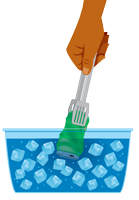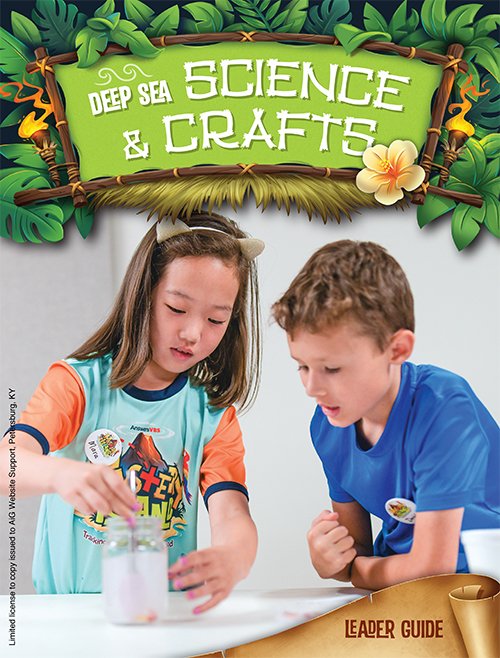Can Crushing
Day Two Experiment
on November 22, 2021; last updated November 30, 2021Materials (for up-front demonstration)

- Empty pop cans, 2–3 per rotation
- Hot water
- Ice water bath (tub filled with ice and cold water)
- Hot plate or source for boiling water
- Tongs
Pre-Prep
Empty and rinse out the pop cans. Set up the demo with the hot plate with boiling water and the tub filled with ice and cold water. Make sure no children can get near it.
Teaching Tie-In
How many of you like to swim? Take responses. Do you like to dive? Take responses. Have you ever noticed a feeling in your eardrums when you dive down into a pool? Take responses. That’s called water pressure. God designed water pressure, and the way it works is, the deeper you go down into the water, the greater the pressure.
Let’s try something. Hold your hands up in the air and close your eyes. Do so. Imagine you’re trying to hold up 50 jumbo jets. Do so. Now here’s the crazy thing. The water pressure is so off-the-charts high at the bottom of the ocean, it would be like a person trying to hold up those 50 jumbo jets! Of course, that’s not possible, and no person could survive in the water at the bottom of the ocean, because God didn’t design our bodies to be able to handle that much crushing pressure. Our bones would just snap! But what’s cool is he did design certain animals and plants to be able to survive down there. To them, the pressure is no biggie. The flapjack octopus is one of those. And what’s even more amazing is God knows where every one of those animals is, and what it’s doing every second. He’s even there with them! He’s everywhere at the same time! He’s not part of his creation, but he is with his creation. Wow!
As we watch this demo that shows the effects of pressure crushing a can, let’s think about our incredible God who knew how to create animals that could withstand incredible pressure.
Class Time Directions
Caution: This experiment should be done by a teacher up front since it involves a hot plate and boiling water.
First demonstrate the can crushing experiment and then ask questions about the demo. Place about 1–2 tablespoons of boiling water in a pop can and swirl it around. (You could also put the pop can with water directly on the hot plate to make the water boil.) Then, using tongs, flip the can over and submerge the top of the can under cold water in the ice bath. The can crushes immediately. (Make sure nobody is near enough to get hit with any drops of hot water.)
If desired, share the God-designed principles below of why this happened.
What caused this can to be crushed? Take answers. When it gets very hot and boils, water is turned into something called water vapor. Have you ever taken a very hot shower or bath and the bathroom turned steamy? Take responses. Well, when we heat the water in this can, the water turns into a vapor like that steamy bathroom, and it fills up the can and pushes the air out of the can. When I cool the can, it causes the water vapor to also cool, and when water vapor cools, it condenses quickly, which means it gets smaller. When the water vapor gets smaller, there is nothing filling the inside of the can anymore. So when the air pushes on the can from the outside, there’s no water vapor on the inside pushing back. As a result of the pressure from the air that’s outside, the can crushes.
As an option, the leader or a student can demonstrate crushing a can with their hands. Repeat the demonstration one or two more times.
Tip Corner
- If you have time, you may want to highlight some other animals that can thrive deep in the ocean. They are fascinating! Print off pictures of them and discuss. A whale, for instance, has no trouble withstanding dramatic pressure changes because God made its body more flexible, with a rib cage that can collapse under pressure. This keeps their lungs from exploding.
- A science term introduced today is water vapor.
Mystery Island Deep Sea Science & Crafts
Kids love science experiments and crafts! This guide contains everything you need to coordinate the daily science experiments and crafts for all age groups.
Browse Kids Book- © 2024 Answers in Genesis
- Privacy Policy
- Contact
- About

